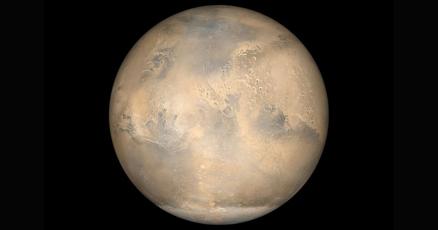Declining Possibility of Martian Life
Recent research indicates that the likelihood of finding life on Mars has decreased as studies suggest the planet’s watery past was briefer than previously believed. Mars, often regarded as a prime candidate for extraterrestrial life, was once thought to host conditions conducive to liquid water—a crucial element for life.

Reevaluation of Martian Water Channels
Researchers from the Netherlands have discovered that certain Martian surface features, previously believed to be carved by flowing water, may also form through the actions of evaporating carbon dioxide ice. This finding suggests that liquid water’s presence on Mars was more fleeting than earlier estimations, limiting the timeframe available for life to potentially emerge.

Implications for Understanding Martian Geology
The team utilized a simulated Martian environment to demonstrate that carbon dioxide-driven debris flows could reshape the Martian landscape as effectively as water-driven ones on Earth. This discovery not only redefines our understanding of Martian geological activity but also reduces the probability of past life on the planet, pushing the existence of significant water bodies into Mars’s more distant past.
Additional Context:
This research provides a critical insight into the geological processes on Mars, comparing them to similar phenomena on Earth such as debris flows in mountainous regions. By studying these Martian processes, scientists can refine their models of both Martian and terrestrial geology. The study’s findings also offer a new perspective on how environmental conditions on Mars have evolved, emphasizing the planet’s extreme conditions and the dynamic processes that occur even without liquid water. This understanding is vital for future missions and potentially habitable planet assessments.
